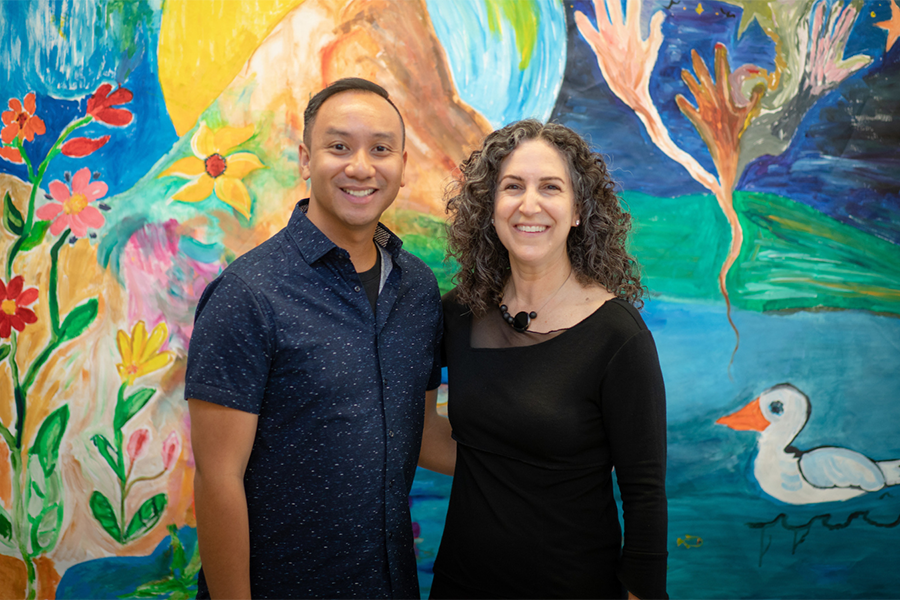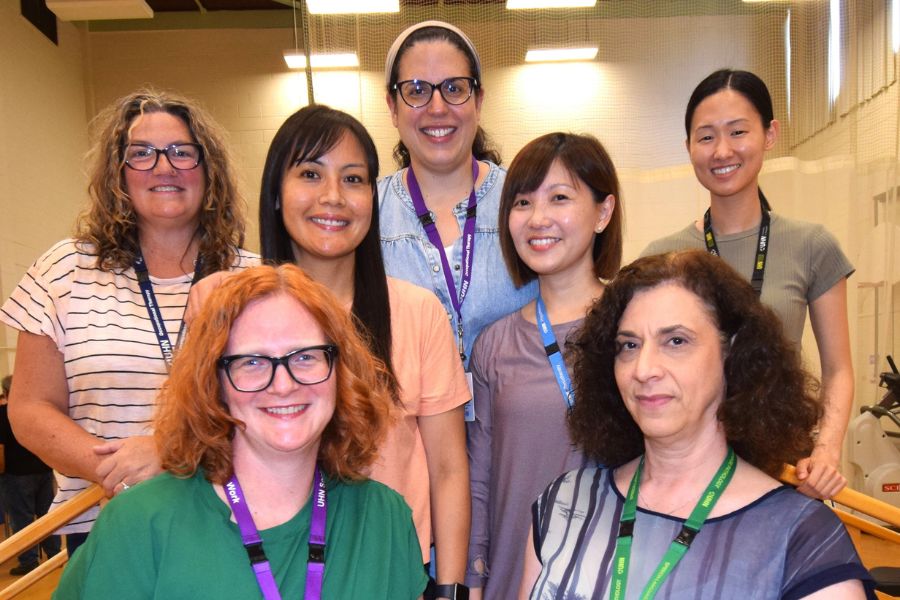
When Dr. Pia Kontos was a young girl, she would visit her great-grandmother, who was living with dementia, in her long-term care facility.
Even as a child, she was struck by how the facility’s staff would treat the older woman as if she were no longer there. In contrast, young Dr. Kontos still recognized the essence of her great-grandmother, even if cognitive changes meant she was expressing herself in different ways.
This experience took place decades before Dr. Kontos became a Senior Scientist at UHN’s KITE Research Institute, but it stayed with her and would influence her work in trying to reduce the stigma and social exclusion faced by people living with dementia.
“I always felt badly for her and that there was so much more that could have been done to support her,” Dr. Kontos says. “I developed a very deep concern when I came to learn about the stigma associated with dementia.”
Changing perceptions through theatre
Dr. Kontos specializes in projects that involve the confluence of dementia care and the arts, forming two main categories. The first covers the realm of advocacy and activism, where she uses unconventional tools to shift attitudes toward people living with dementia and care practices.
While doing research with residents of care facilities, Dr. Kontos observed that there were many meaningful expressions — what she calls “embodied selfhood,” or the idea that people’s sense of self continues to be expressed through their bodies even in the face of significant cognitive decline — that would go unnoticed.
Often, care providers dismiss residents’ capacity for self-expression, particularly if the person in question had lost the ability to communicate verbally and showed other signs of significant cognitive decline. She believes that this is largely because people assume individuals with cognitive impairment lose their entire identity.
To challenge this assumption, she took a “show rather than tell” approach and created a series of research-based theatrical vignettes to illustrate examples from her research of people living with dementia expressing themselves in subtle but meaningful and often overlooked ways.
The vignettes were designed to prompt audiences, primarily family and professional care providers, to “see” the harms of stigma and the possibilities of living well with dementia when supported to do so.
The impact was so profound that she continued to draw on the power of theatre to trigger change.

No one ever changed the world on their own but when the bright minds at UHN work together with donors we can redefine the world of health care together.


